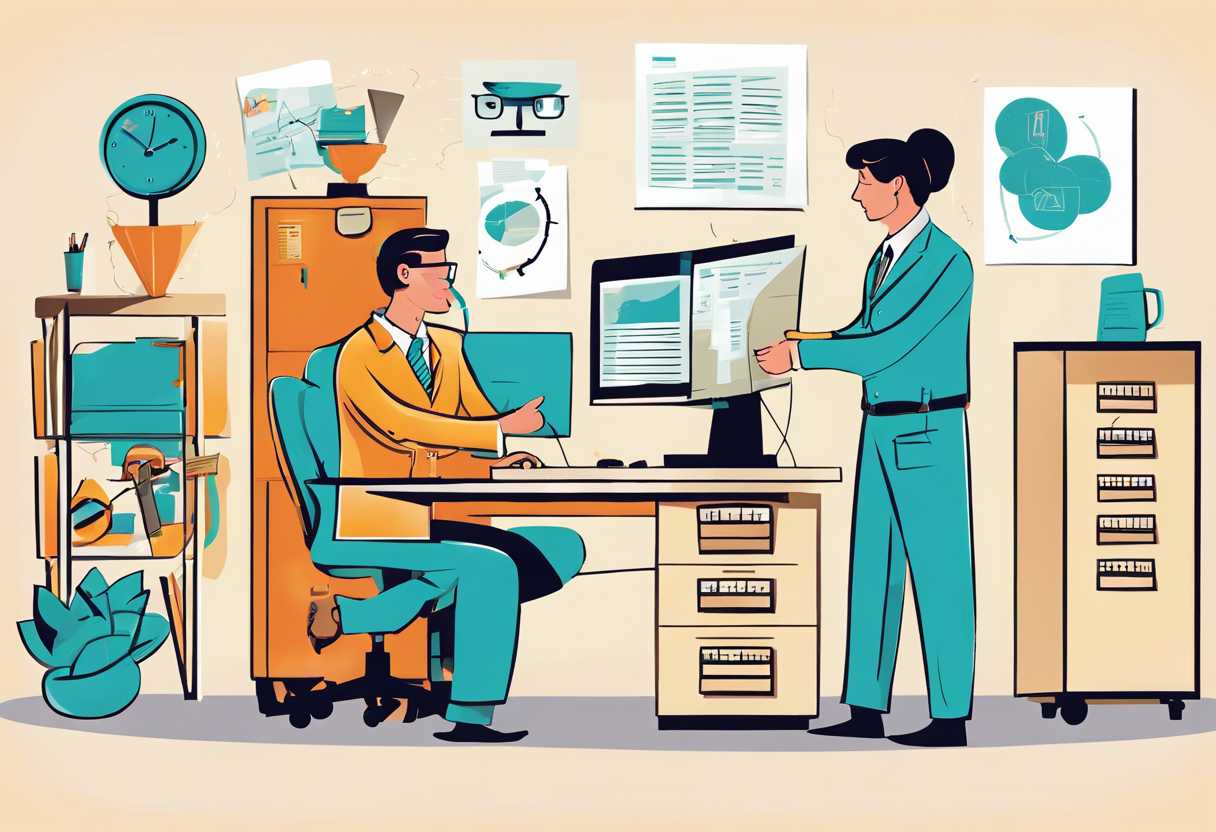Are you looking to elevate your team’s customer service skills and provide exceptional experiences for your customers? Look no further! In this blog post, we will provide you with 6 proven tips to improve your team’s customer service skills. From mastering the art of effective communication to empowering your team with problem-solving strategies, we’ve got you covered. Cultivating a positive attitude and empathy in your customer service team, as well as implementing training and development initiatives, are also key areas we will explore. Stay tuned as we dive into these essential strategies to enhance your team’s customer service skills and take your customer experience to the next level.
Elevate Your Team’s Customer Service Skills with These Proven Tips
Empathy is Key
One of the most important skills for customer service representatives is the ability to empathize with customers. When customers feel understood and valued, they are more likely to have a positive experience, even if their issue isn’t fully resolved. Encourage your team to actively listen to customers, acknowledge their feelings, and offer genuine support. Empathy can go a long way in building strong customer relationships.
Provide Ongoing Training
Customer service skills can always be improved, so it’s important to provide ongoing training for your team. This can include role-playing exercises, workshops on active listening, and sessions on handling difficult customers. Investing in your team’s development will not only improve their skills but also boost their confidence and job satisfaction.
Use Positive Language
The language your team uses can greatly impact the customer experience. Encourage them to use positive language, even when delivering bad news. For example, instead of saying “I can’t do that,” they can say “Let me find an alternative solution for you.” Positive language can help diffuse tense situations and leave customers feeling more satisfied.

Mastering the Art of Effective Communication in Customer Service
The Importance of Effective Communication in Customer Service
Effective communication is the cornerstone of exceptional customer service. It is crucial for building trust, resolving issues, and creating positive customer experiences. When customer service representatives communicate clearly and empathetically, they can effectively address customer needs and concerns, leading to increased customer satisfaction and loyalty.
Key Strategies for Improving Communication in Customer Service
1. Active Listening: Customer service representatives should actively listen to customers, demonstrating empathy and understanding. This involves giving the customer their full attention, acknowledging their concerns, and responding appropriately.
2. Clear and Concise Language: Using clear and concise language helps to avoid misunderstandings and confusion. Customer service representatives should communicate in a straightforward manner, avoiding jargon or technical language that may be difficult for customers to understand.
3. Empathy and Understanding: Demonstrating empathy and understanding towards customers can help to build rapport and trust. Customer service representatives should acknowledge the customer’s emotions and show genuine concern for their situation.
Benefits of Effective Communication in Customer Service
Effective communication in customer service can lead to a range of benefits for both the customer and the business. These include:
- Improved customer satisfaction
- Increased customer loyalty
- Positive brand reputation
- Reduced customer complaints
- Enhanced problem-solving abilities

Empower Your Team with Problem-Solving Strategies for Customer Service Excellence
Understanding the Importance of Problem-Solving in Customer Service
Customer service is the backbone of any successful business, and problem-solving is a crucial aspect of delivering exceptional customer experiences. When your team is equipped with effective problem-solving strategies, they can address customer issues promptly and efficiently, leading to increased satisfaction and loyalty.
Key Problem-Solving Strategies for Customer Service Excellence
1. **Active Listening**: Encourage your team to actively listen to customers’ concerns and empathize with their frustrations. This not only helps in understanding the problem but also makes the customer feel heard and valued.
2. **Empowerment**: Empower your team to make decisions and resolve issues on the spot, within reason. This can significantly reduce resolution times and improve customer satisfaction.
3. **Collaboration**: Encourage collaboration among team members to brainstorm solutions and share best practices for handling different types of customer problems.
Implementing Problem-Solving Strategies in Your Customer Service Team
1. **Training and Development**: Provide regular training sessions to equip your team with the necessary problem-solving skills and techniques. This could include role-playing exercises and case studies to simulate real-life scenarios.
2. **Feedback and Recognition**: Create a culture of feedback and recognition, where team members are encouraged to share their experiences and learn from each other. Recognize and reward employees who demonstrate exceptional problem-solving abilities.
3. **Data Analysis**: Utilize customer feedback and data analysis to identify recurring issues and proactively address them. This can help in preventing similar problems from arising in the future.
Cultivating a Positive Attitude and Empathy in Your Customer Service Team
The Importance of a Positive Attitude
A positive attitude is crucial in customer service as it sets the tone for interactions with customers. When your team members approach their work with a positive mindset, they are more likely to be patient, understanding, and solution-oriented. This can lead to improved customer satisfaction and loyalty.
Developing Empathy in Customer Service
Empathy is the ability to understand and share the feelings of others. In customer service, empathy is essential for building rapport with customers and resolving issues effectively. Encouraging your team to put themselves in the customer’s shoes can lead to more meaningful interactions and better problem-solving.
Implementing Strategies for Cultivating a Positive Attitude and Empathy
1. Training and Development: Provide ongoing training and development opportunities for your customer service team to enhance their communication skills, emotional intelligence, and conflict resolution abilities.
2. Lead by Example: As a leader, demonstrate and encourage a positive attitude and empathetic approach in your own interactions with both customers and team members.
3. Recognition and Rewards: Acknowledge and reward team members who consistently demonstrate a positive attitude and empathy in their customer interactions. This can motivate others to follow suit.
Implementing Training and Development Initiatives to Enhance Your Team’s Customer Service Skills
Benefits of Customer Service Training
Customer service training is essential for any business looking to improve their customer satisfaction levels. By providing your team with the necessary skills and knowledge, you can ensure that they are equipped to handle any customer interaction with professionalism and efficiency. Training can also help to boost employee morale and motivation, leading to a more positive work environment.
Key Components of Effective Customer Service Training
When implementing customer service training initiatives, it’s important to focus on key components that will have the most impact on your team’s skills. This can include topics such as active listening, empathy, problem-solving, and effective communication. By addressing these areas, you can help your team to better understand and meet the needs of your customers.
- Active listening
- Empathy
- Problem-solving
- Effective communication
Measuring the Impact of Training Initiatives
It’s important to measure the impact of your training initiatives to ensure that they are effective. This can be done through customer satisfaction surveys, employee performance evaluations, and tracking key metrics such as customer retention and repeat business. By regularly assessing the impact of your training, you can make adjustments as needed to continuously improve your team’s customer service skills.
| Customer satisfaction surveys | Employee performance evaluations | Tracking key metrics |
Conclusion
Improving your team’s customer service skills is essential for creating a positive and memorable experience for your customers. By implementing the tips discussed in this blog post, you can elevate your team’s customer service skills and set your business apart from the competition.
Mastering the art of effective communication, empowering your team with problem-solving strategies, cultivating a positive attitude and empathy, and implementing training and development initiatives are all crucial components of creating a customer-centric team.
Remember, customer service excellence is an ongoing journey, and it requires dedication and continuous improvement. Encourage your team to embrace these tips and strive for excellence in every customer interaction.
By investing in your team’s customer service skills, you can build long-lasting relationships with your customers and ultimately drive business success. Start implementing these tips today and watch as your team’s customer service skills reach new heights.
Get 6 tips for improving your team’s customer service skills and take your customer service to the next level.

